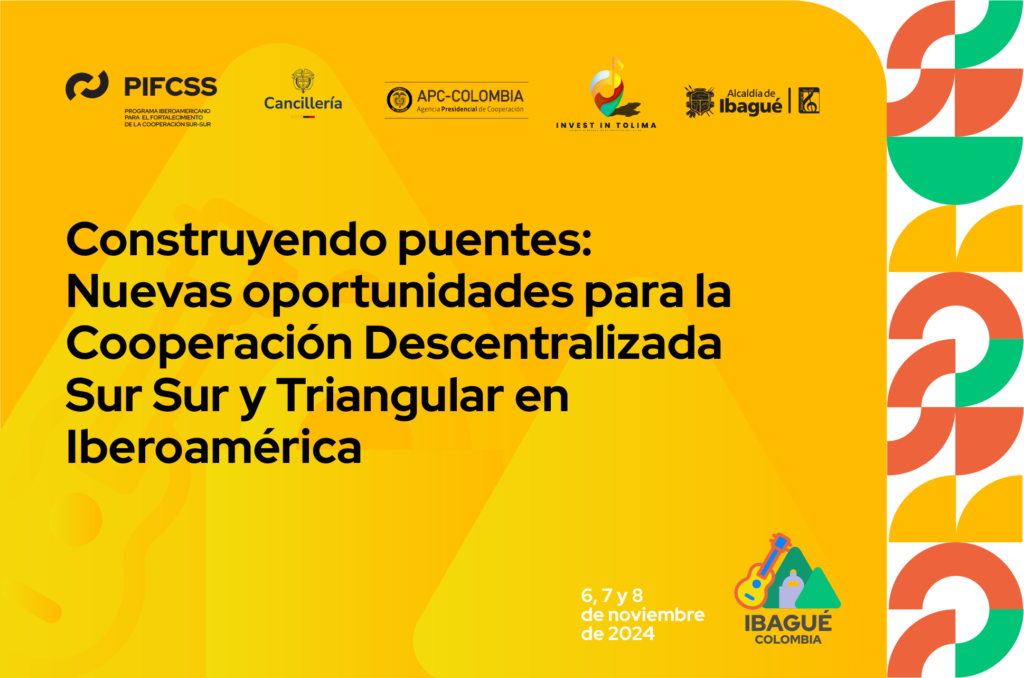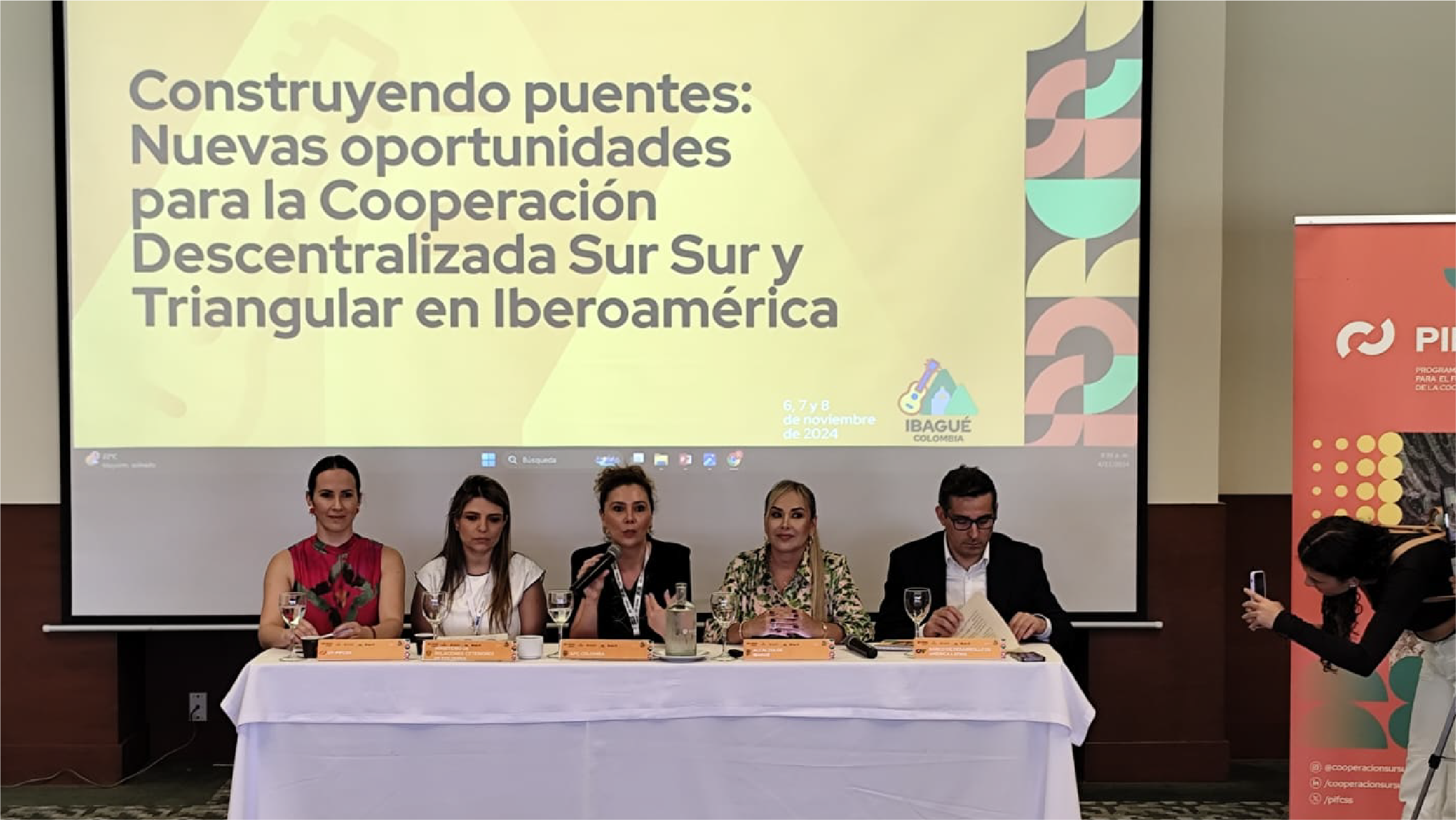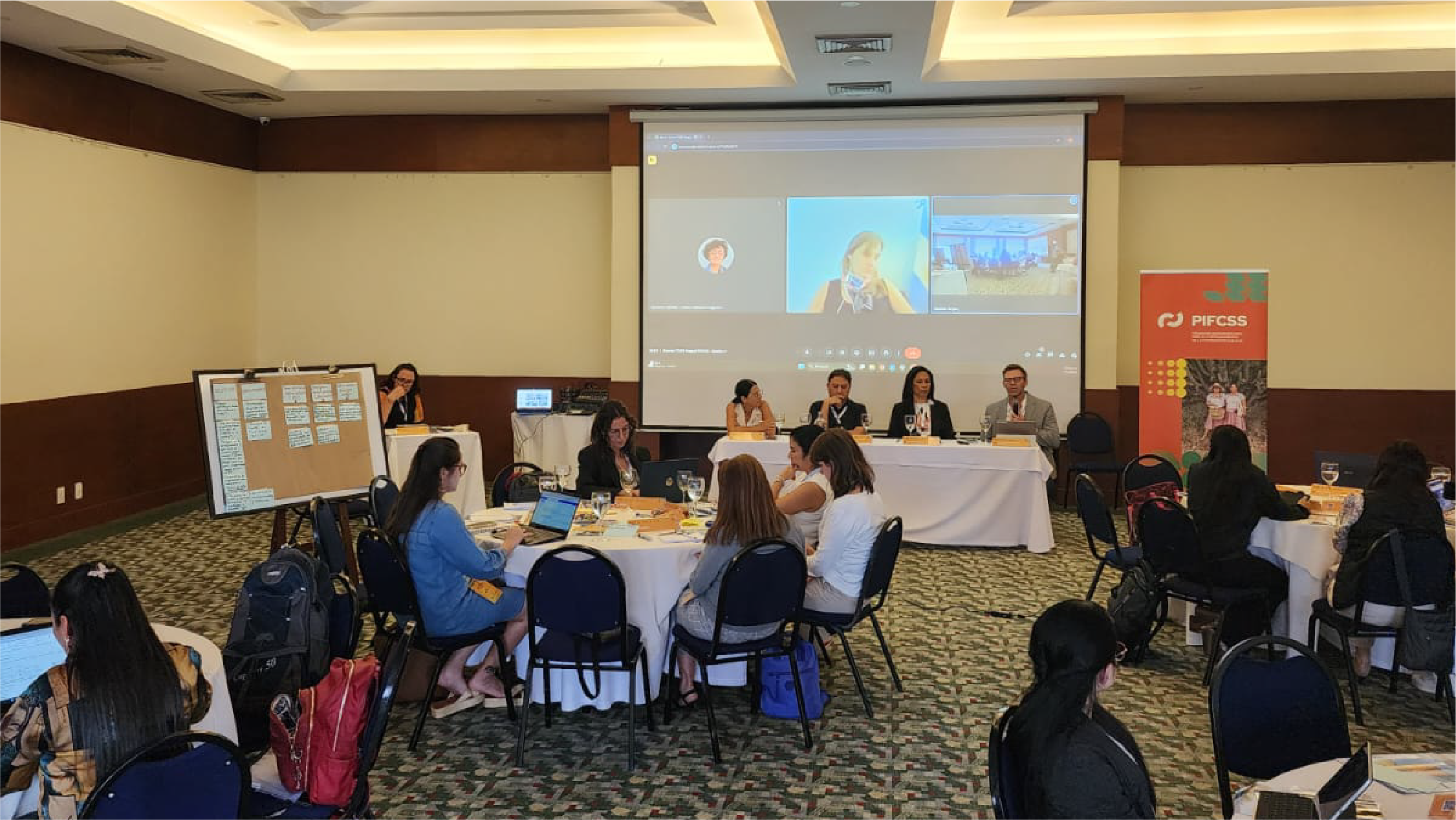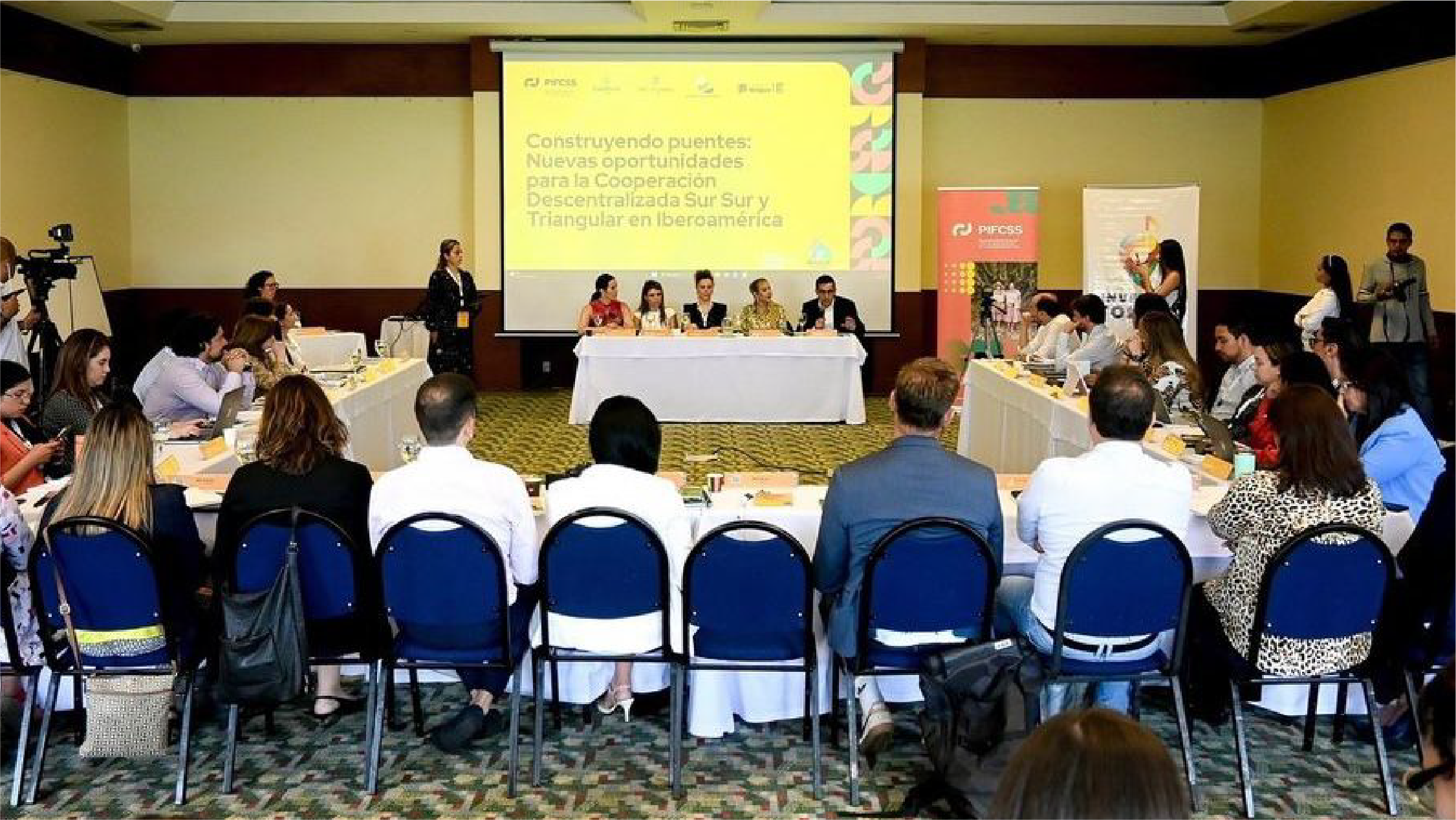Meeting in Ibagué Boosts South-South and Triangular Decentralized Cooperation in Ibero-America
Ibagué, Colombia, November 8, 2024 – Over three days of intense activities, Ibagué hosted the event “Building Bridges: New Opportunities for South-South and Triangular Decentralized Cooperation in Ibero-America,” an initiative organized by the Ibero-American Program for Strengthening South-South Cooperation (PIFCSS) in collaboration with the Colombian government. The event brought together key stakeholders in territorial cooperation from across the region.
The event allowed for the analysis of the challenges facing decentralized cooperation in the region, such as creating coordination strategies between government levels and the need to strengthen the capacities of subnational governments. The sessions focused on promoting the exchange of experiences, reflection, and co-creation of innovative proposals that respond to the needs and particularities of the territories.
Spaces for Dialogue and Mutual Learning
The event was opened by the Mayor of Ibagué, Johana Ximena Aranda, alongside Eleonora Betancur González, Director General of the Colombian Presidential Agency for International Cooperation (APC-Colombia), Diana Paez, Director of International Cooperation at the Ministry of Foreign Affairs of Colombia, and Junita Olarte, Technical Secretary of the Ibero-American Program for Strengthening South-South Cooperation (PIFCSS). They highlighted the importance of strengthening collaboration ties in the region, placing territories at the center.
On the first day, preliminary findings from a PIFCSS study on Decentralized Cooperation in Ibero-America were presented, followed by a roundtable discussion where key national government actors, local authorities, and civil society representatives debated the achievements and challenges of cooperation at various government levels. This session allowed for an in-depth analysis of public policies and ongoing projects.
Additionally, the dialogue “The Role of Governing Bodies in South-South and Triangular Decentralized Cooperation” took place, in which national cooperation agencies shared their experiences in multilevel management and discussed the challenges of creating national strategies. Collaborative working groups were also held, exploring opportunities to improve coordination between different government levels and generate new decentralized cooperation proposals.
Presentation of Notable Experiences and Innovative Strategies
The second day was marked by the session “Notable Experiences of South-South and Triangular Decentralized Cooperation in Ibero-America,” which brought together leaders of innovative projects from subnational governments and local government associations. Speakers such as Lidia Victoria Camacho Andrade (CONGOPE, Ecuador), Constanza Figueroa Jerez (Salta Province, Argentina), Leslye Patricia Monroy Pérez (Tri-National Border Community Rio Lempa), and Ingrid Micaelly Freitas Amorim, Legal Affairs Manager, National Front of Mayors (Brazil), shared their achievements and challenges in managing territorial cooperation.
Following this, working group sessions were held, where participants explored how networks of local governments and international organizations can collaborate to strengthen Decentralized Cooperation. Through strategic questions, concrete proposals were identified to guide the work of PIFCSS in supporting subnational governments.
In the afternoon session, titled “Initiatives and Support Instruments for South-South and Triangular Decentralized Cooperation,” representatives from local government networks, programs, and countries presented projects supporting Decentralized Cooperation. Panelists included Ana Ciuti (Autonomous City of Buenos Aires), Denise Matos Mach (Bahiainveste, Brazil), Felipe Rossi Schmechel (GIZ Colombia), Alejandro González Valencia (ICELI), and Laurence Vignollet (French Embassy), who addressed collaboration opportunities and strategic synergies in the development of territorial cooperation.
Looking to the Future
The meeting concluded with an optimistic and renewed vision of the role of South-South and Triangular Decentralized Cooperation in Ibero-America, emphasizing the importance of continuing to foster spaces for learning and co-creation. The outcomes and proposals that emerged in Ibagué will serve as the foundation for future actions by PIFCSS in its 2024-2030 Strategy, with the commitment to expanding knowledge networks and strengthening cooperation in the region to jointly address the challenges of sustainable development.
The event was a showcase of the region’s commitment to multilevel cooperation, opening a new chapter in building bridges for the inclusive and sustainable development of Ibero-America.



